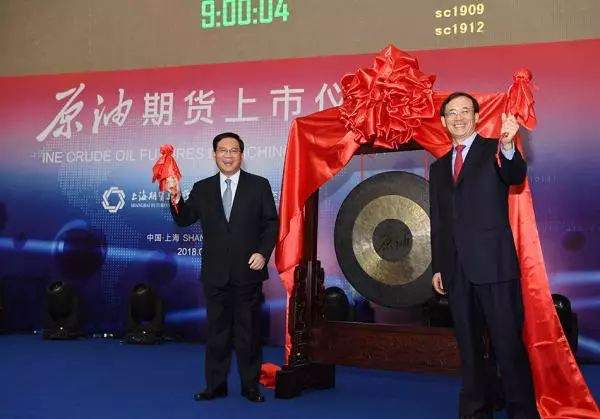China launched its yuan-denominated crude oil futures on Monday at the Shanghai Futures Exchange after years of relentless efforts, which is also the first futures listed in mainland China.

Why Now?
After 17 years' planning since 2001, China’s crude oil futures has finally developed into a new stage where a complete operations system have been set up through the joint efforts of government organs, including the Ministry of Finance and General Administration of Customs.
Another factor contributing to such a phenomenon lies in the reform of the spot market circulation system, as evidenced by petroleum refineries' strengthened rights to use and to import, as well as diversified participants in the crude oil market.
How is this different from two other crude oil futures?
Brent Crude and West Texas Intermediate (WTI) serve as benchmark prices for purchases of oil worldwide and in the United States respectively. China's futures deals with the transaction of medium sour crude oil while the other two focus on sweet light crude oil.
China has a price limit of ±4% per trading day, yet no such rules exist in Brent Crude. WTI, nevertheless, is equipped with such a limit and circuit breaker.
How do individual investors participate?
Aside from knowledge about trading rules, investors involved in the transaction of crude oil futures should know the basic system and potential risks of futures market. Experience in trading or mock trading is a must. And individual investors should invest no less than 500,000 yuan ( or the equivalent in foreign currency).
On the other hand, individual customers' available funds in margin accounts should exceed 500,000 yuan ( or the equivalent in foreign currency) five days before applying for trading codes.
Why yuan-denominated?
"The price of our yuan-denominated oil futures is based on CIF (cost, insurance, freight) China of imported crude oil, which makes it easier for domestic oil-related companies to manage price fluctuation risks." said Cheng Shen of China Securities Regulatory Commission.
Wang Jinzhao, deputy director of research of the Department of Foreign Economic Relations, Development Research Center of the State Council, also pointed out that for oil exporters, yuan-based settlements, valuation and trade not only reduce exchange rate risks and extra fees but also push forward yuan-internationalization.
Why it matters.
China remains the world’s top crude oil importer, and listing oil futures will help to nurture a price system reflecting the supply-demand relations of the oil market in China and Asia-Pacific region, and serve as a hedging tool for enterprises.
(Compiled by Liu Wenbo)


